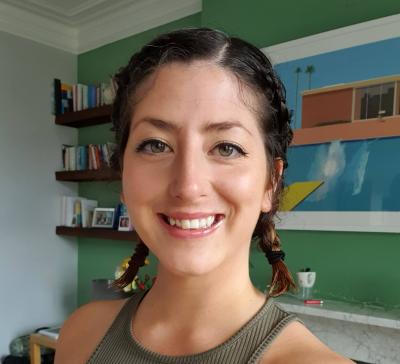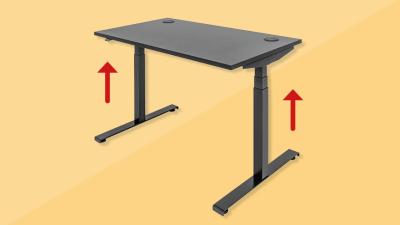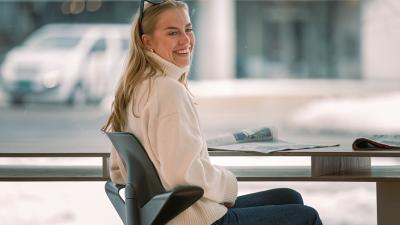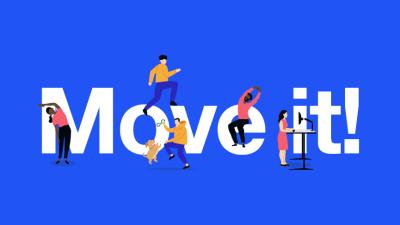Here's a little festive advice from our partners at Ocushield, the creators of blue light filtering products to enhance your health and wellbeing.

Long stretches of time with the family can often involve time around screens, and with continued social distance measures in place and the closure of non-essential shops and restaurants, there's likely to be even more time spent on digital devices this holiday season.
While technology plays a role in bringing us together and connecting us with other people, it can also have damaging effects on our health and wellbeing. We take a look at how different family members use technology and how blue light from these device screens can affect them this festive season.
Young children (Ages 0-6)
The festive period can be an extremely busy time for parents, whether it’s running errands, doing some last-minute Christmas shopping, or making sure the turkey is cooked to perfection. But juggling multiple tasks at once can mean a distraction is needed for the kids - and what’s easier than putting something on the TV or iPad?
While technology is the easiest way to keep kids entertained, they are most at risk from the dangers of blue light. This is due to a part of the eye called a crystalline lens, which is used to focus on objects. Over time, this develops into a natural filter but until their teenage years, there’s no natural protection in children's eyes.
If that wasn’t bad enough, children also have larger pupils, which means more light enters the eye and reaches the retina. This can impact a number of areas from bedtime routines to concentration. This Christmas, why not give a gift that protects your family in what’s set to be the most digital holiday yet?
Generation Z (Ages 6-23)
Gen Z are digital natives and the most tech-savvy users out there. They are tech-obsessed and love to feel part of a digital community. We expect this demographic to be glued to their phones this festive season, whether it's on Tiktok, Snapchat or Instagram, they'll be keeping up with the latest trends and updating their followers with their days. They’re also likely to be using five screens (smartphone, TV, laptop, desktop and tablet) and exposed to the highest amount of screen time and, as a result, blue light.
Millennials (Ages 24 - 38)
Millennials grew up in the era of rapid technology development and it has become a core part of their daily lives. They're the most diverse in terms of lifestyle habits, spending an average of four hours per day on their smartphone - and often using up to three screens at once. As heavy users of social media, millennials are likely to be capturing special moments or taking the perfect selfie to show off their new gifts. But connecting to others in the digital environment comes with a price. What if we told you all of those selfies could be ageing you prematurely? And that the constant scrolling may be causing headaches and sleepless nights? Protect yourself properly as you spend hours on screens, reading, learning and growing your potential, safely!
Generation X (Ages 39-53)
Gen X are predominantly interested in using technology to improve their daily lives and connect with others. They're exposed to blue light while catching up with family and loved ones on FaceTime, work meetings on Zoom, and even from everyday objects like TV screens and light bulbs. Not only will they have a lot on their plate, but all of this time in front of blue light can cause issues with sleeping, tired eyes and age-related vision problems. It’s never been more important to be aware of the side effects that come from a busy schedule. Be sure to keep yourself safe and protected by using blue light protection to ensure your eyes, mind, body and wellbeing are protected in a busy and fast-paced period.
Boomers (Age 54+)
While you may think older people would be exposed to the least amount of blue light with less smartphone use, they can still be found in front of the TV, watching a film or playing games with the family.
With blue light coming from household devices that make up their everyday routine, they are still very much at risk from the negative effects of using technology - and may find themselves with headaches or struggling to fall asleep at night.
Older people also have less macular pigment due to ageing which natural protection against UV and blue light, therefore they are also more at risk from blue light damage and should take extra steps to protect themselves, as macular degeneration is an eye disease that occurs in people 60 and above. With the current pandemic, they may be relying on technology to spend time with the family. Grandparents are always looking out for us, so it’s time to look after them - with safe and healthy eyes in mind.
Technology should help us stay connected and give us the means to cherish those moments with loved ones. Still, it’s important to be aware that it might come with tired eyes, headaches and sleepless nights - as well as contributing to age-related vision problems such as macular degeneration. So let the festivities continue and enjoy every moment together, while ensuring that we protect those we care about from artificial blue light.
Blue light filters for laptops, tablets and computer screens can help reduce the negative impact of blue light on our health and wellbeing - as can daily-wear glasses and reading lamps.











